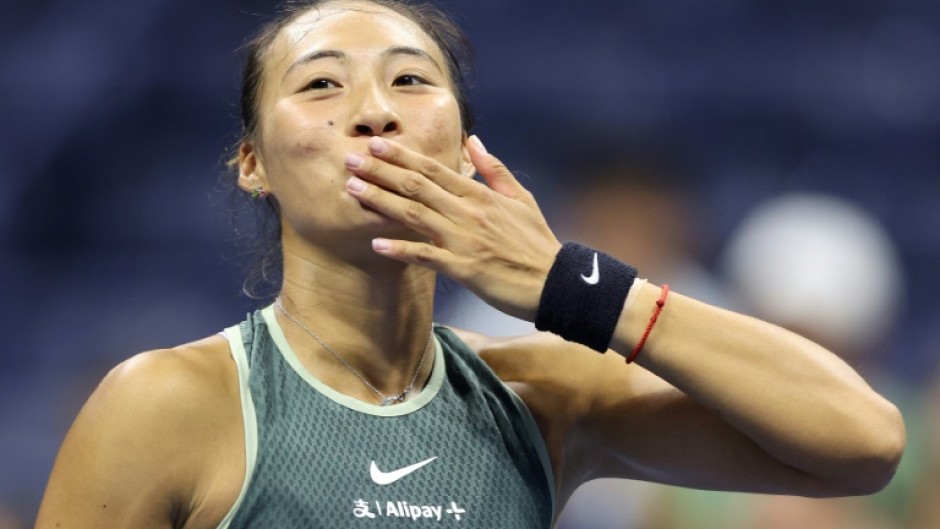NEW YORK - Former world number one Andy Murray laid into US Open organisers on Monday, describing scheduling at the Grand Slam tournament as "a total mess" after a women's match ended at a record 2:15 a.m.
China's seventh-seed Zheng Qinwen repeated her Olympic Games gold medal victory over Donna Vekic of Croatia with her 7-6 (7/2), 4-6, 6-2 triumph setting a new benchmark for a late finish to a women's singles tie at Flushing Meadows.
Murray, however, insisted that the record represented a low point.
"The tennis scheduling situation is a total mess. It looks so amateurish having matches going on at 2, 3, 4am. Sort it out @usopen," 2012 US Open champion Murray, who has only recently retired, posted on X.
The fourth round clash between Zheng and Vekic lasted for two hours and 50 minutes after only getting underway at around 11:25 p.m. on Sunday.
A four-set, three-hour men's match had preceded it but that in turn had started later than the scheduled 7 p.m. time slot after the afternoon session over-ran.
The Zheng-Vekic match broke the record for the previous latest finishing women's match of 2:13 a.m. from 2021 when Maria Sakkari defeated Bianca Andreescu in a last-16 tie.
Zheng, 21, was unperturbed by her early morning finish.
"It's always nice to play in the night session because I'm used to it," Zheng told the diehard smattering of fans left inside the cavernous 24,000-seater Arthur Ashe Stadium.
"It's the first time I've played here in New York at two in the morning. It's unbelievable. Thanks to the fans that aren't sleeping tonight for supporting me here."
This year's US Open has been plagued by late finishes despite organisers' pledges to tackle the issue which had also affected other Grand Slam events in Melbourne and Paris.
- 'Tricky' -
World number two Aryna Sabalenka's win over Ekaterina Alexandrova in the third round started at a record late time of 12:08 a.m. on Saturday and finished at 1:48 a.m.
"I got back at 3:00 a.m., probably fall asleep at 4:00," said Sabalenka.
"I'm glad I didn't play for, like, three hours and then I would probably come back at 5:00 a.m. and then this would be tricky."
Germany's Alexander Zverev completed a four-set, third round win over Tomas Martin Etcheverry at 2:35 a.m. on Saturday.
That was the second latest finish in US Open history, behind only the 2:50 a.m. conclusion between Carlos Alcaraz and Jannik Sinner in 2022.
World number four Zverev was back on the court on Sunday afternoon to defeat Brandon Nakashima and reach the quarter-finals.
US Open chiefs introduced a new policy this year to counter the problem of late finishes with the tournament referee able to move a match to another show court if necessary.
"We've had late matches here. We will still have late matches here. We are now defining a policy," tournament director Stacey Allaster said on the eve of the US Open.
"In the event that we have the second match of the evening in Ashe or the last match in Armstrong, if those matches have not gone on by 11.15pm, the referee will have the discretion to move the match."
However, she added: "That's going to depend on many variables, like do we have the broadcast team ready, do we have a ball crew and so forth."
- 'Unhealthy' -
Zverev is no stranger to early morning finishes -- in Acapulco in 2022, he completed a first round win over Jenson Brooksby at 4:55 a.m. It is the latest-ever finish in all tennis history.
The latest finish in all Grand Slams was 4:34 a.m. when Lleyton Hewitt defeated Marcos Baghdatis at the 2008 Australian Open.
In Melbourne this year, Daniil Medvedev completed a five-set win over Emil Ruusuvuori at 3:40 a.m.
Twelve months earlier, Murray defeated Thanasi Kokkinakis just after 4 a.m. after five hours and 45 minutes on court.
At this year's French Open, Novak Djokovic won a match against Lorenzo Musetti at a tournament record 3:06 a.m.
US star Coco Gauff described such finishes as "unhealthy" for players and fans.
Earlier in 2024, the ATP and WTA, who run the main tours, issued new guidelines to prevent late finishes.
The number of evening matches is limited while none are allowed to start after 11 p.m.
That strategy does not, however, apply to the Grand Slams although Wimbledon already operates a locally-agreed 11 p.m. curfew.
By Dave James

